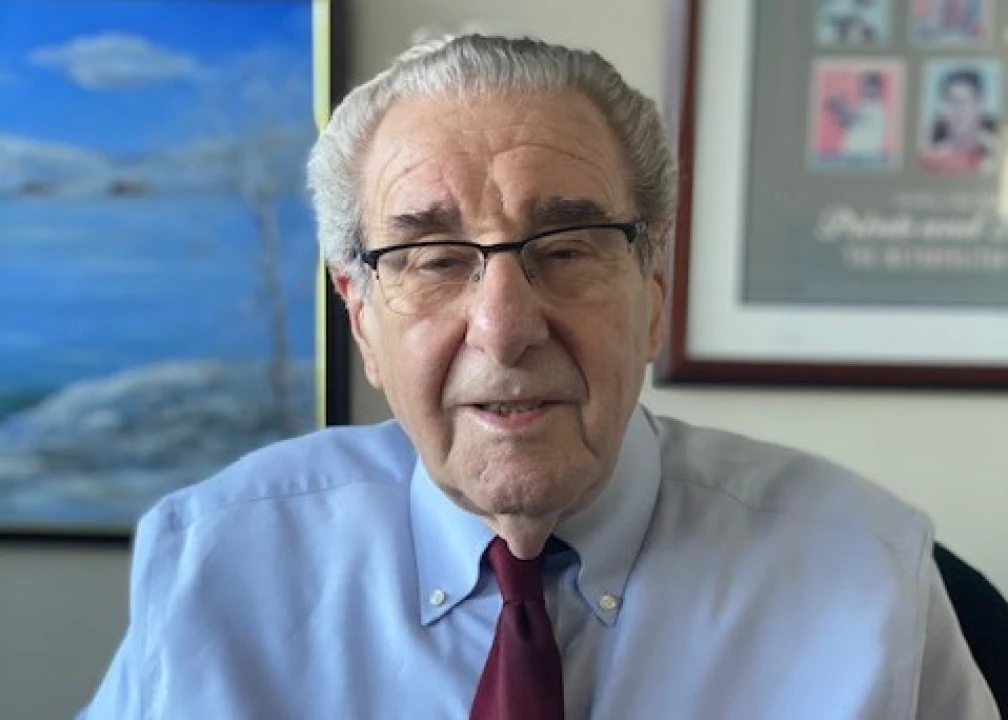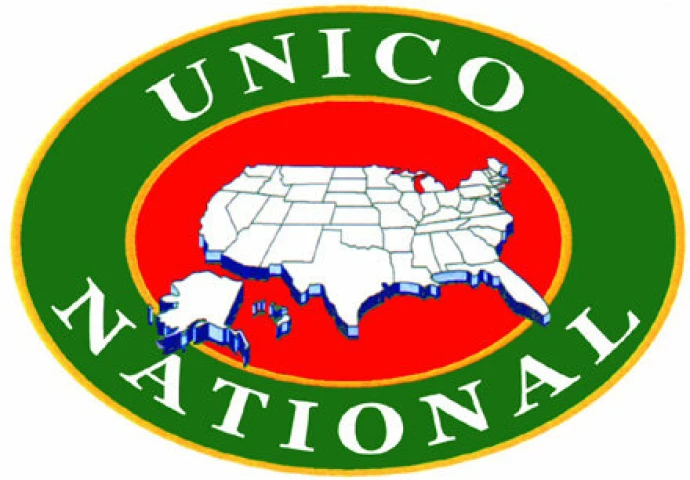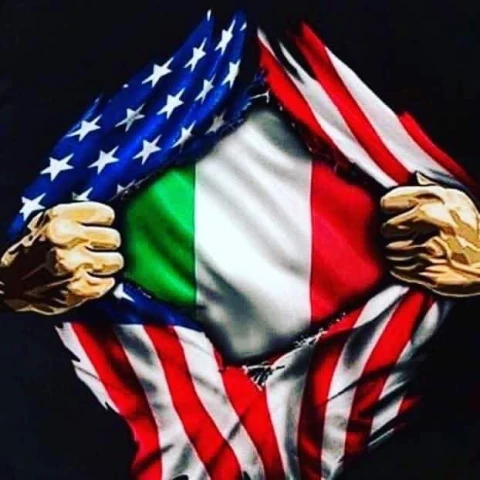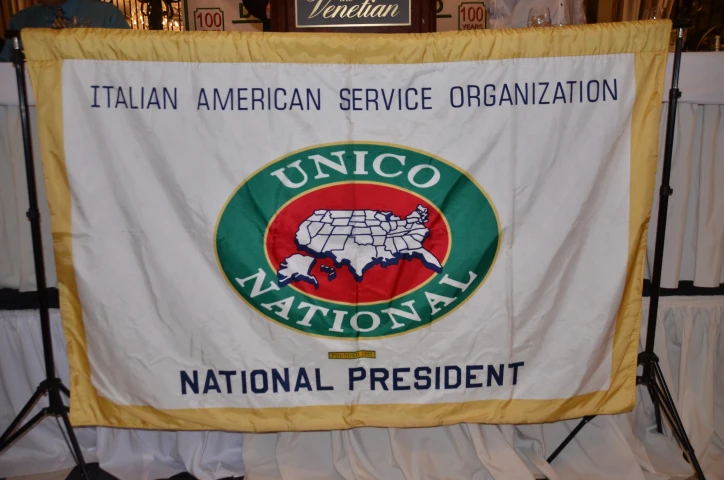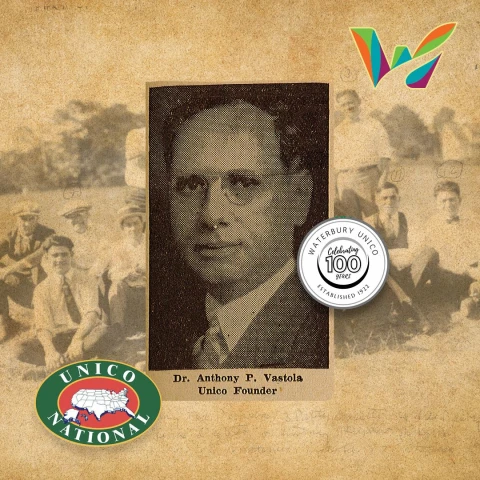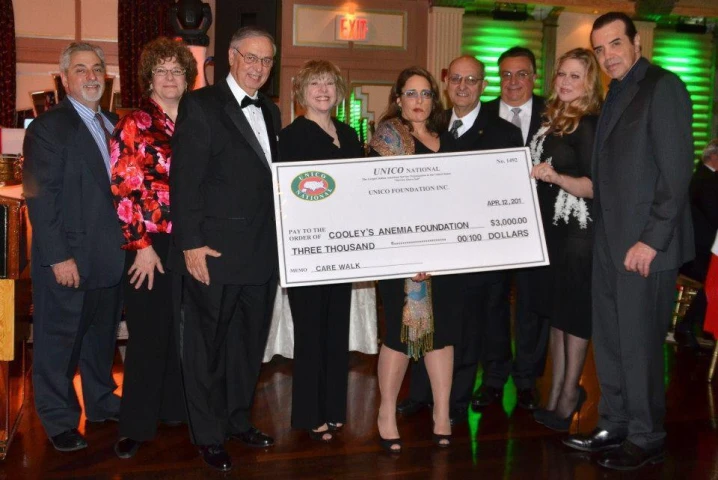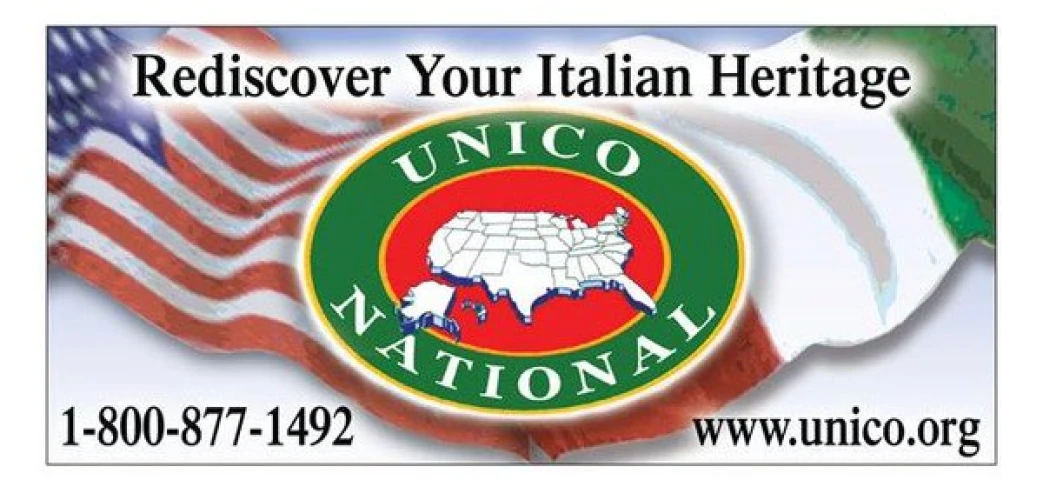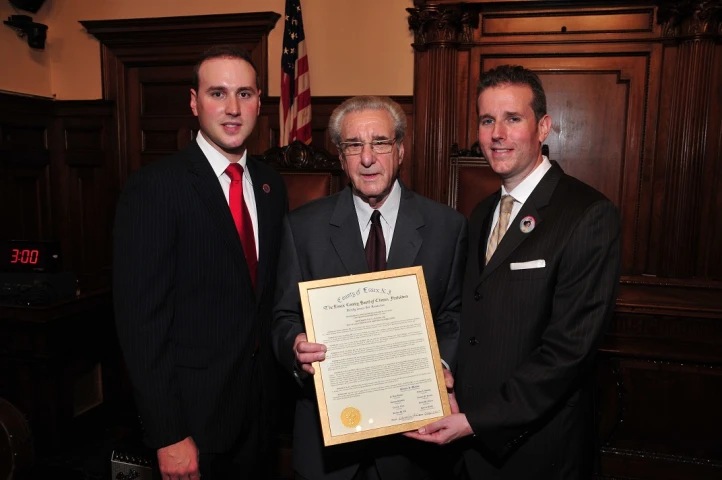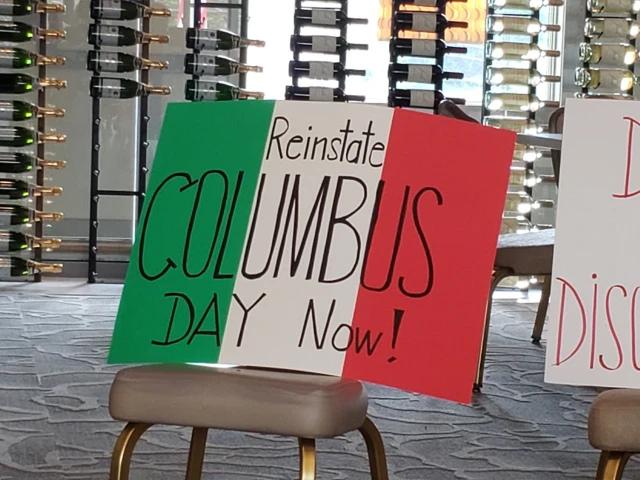UNICO (Unity, Neighborliness, Integrity, Charity, and Opportunity) is celebrating 100 years in 2022, and We the Italians wants to celebrate with all our Unicans friends.
This is why we are happy to welcome a past President of UNICO National, Mr. Paul Alongi, who will help us know more about this historical family of Italian Americans that has been representing the best of this community for 100 years now
Mr. Alongi, welcome to We the Italians. You were born in Newark, New Jersey, the American State with the highest percentage of Italian Americans. Please, share with our readers some of your memories of growing Italian in the garden State, your involvement with UNICO and something about the history of this wonderful organization…
My father, Frank Alongi came from Palermo in Sicily. At the age of 16, he escaped from Mussolini and he never went back and as a result, never saw his mother and a younger sister again. He did have two brothers who were already on the United States, and he joined his older brother Joe in Newark, NJ. My mother, Concetta Livolsi, was born and lived in Italian Harlem, New York City, from parents who came from Catania, also Sicily. While visiting her cousins in Newark, she met my father. They were married a short time later.
I come from the Italian American neighborhood in Newark. Growing up I was bilingual with the Sicilian dialect. My lunch mate for eight years at the Abington Avenue Grammar school was my friend Frankie Valli, his real name was Frank Casteluccio. My Brother Tony's best friend was Joe Pesci. Joe was a country cowboy singer in the days before he went on to Hollywood. During those days, not too many people went to college yet alone to law school. I was one of the first to graduate college and law school from our neighborhood. Waterbury and Torrington, both in Connecticut, were the first chapters in UNICO. Trenton, the first New Jersey chapter was formed by Dr. Joseph Panteleone in 1930. Dr. Panteleone was a personal friend of Dr. Anthony P. Vastola, the founder of UNICO. Dr. Vastola created UNICO as a local club to welcome all the Italian Americans who were discriminated and kept from being members of the local professional and community clubs.
My wife came from Bloomfield, a neighboring town. She also has Sicilian heritage. My brother in law, Nick Sidoti, encouraged me to play centerfield on the Bloomfield UNICO fast pitch softball team. They needed a ringer. It did not take me long to realize that these men were different. They were into the betterment of the community and so I joined as a charter member in 1956. In my neighborhood in Newark, people were living day by day. No interest in the community or even others. When I joined Bloomfield UNICO, I was able to witness something else. These men were businessmen striving to be community leaders trying to lift the image of the Italian Americans in an all-white community that knew nothing about Italians. I was able to learn from them and thus developed character and ambition. Joining UNICO was a life-changing event for my family and me: it led me to do much more bigger things that I could never conceived of doing. From that point on, UNICO became a major part of our lives.
The Newark chapter was very prominent and proactive in those days. They already had four National Presidents from within their organization. They were: Dr. Hugo Sernechia, a Seton Hall Literature Professor, published the first UNICO National Newspaper. John Paolercio, a well known funeral director. John Cervase, a great lawyer and President of the Newark School Board during the Newark City riots, nationally known as a defender of Italian Americans. Al Miele, who would also serve as executive director and secretary, without compensation, well into his eighties: he was known as Mr. UNICO.
During the fifties and early sixties, I was involved in going to college and Law School nights. I was also playing music in neighbor nightclubs so I didn't have time for UNICO. I had a big band using my stage name of Sonny Long. This band had great musicians who later went onto Vegas and Hollywood. We backed and played shows with Tony Bennet, Al Martino, Jerry Vale, Connie Francis, The Four Aces, Dion and the Belmonts, Xavier Cugat and Abby Lane, Domenico Modugno.
When I became a lawyer, in 1965, I started to focus on UNICO. I was elected President of our Chapter in 1967 and went to my first convention in Milwaukee, WI. I met Ted Mazza, National President, and he told me he had been an officer of the National Civic League formed by Antonio Rizzuto in the thirties (the National Rizzuto Award is named in his honor). The league was in Omaha, Kansas City, St. Louis, Milwaukee and Chicago and had women members. After several meeting with other Unicans, it convinced him to have the League join UNICO. It was a very difficult scenario for them to accept, because back in those days their women members were not allowed to join. The saving grace was that they formed Women's Auxiliaries of UNICO and that allowed the League joined us. Thus our organization became national, also thanks to John Cervase and Al Miele who would take the train to Arizona, Omaha or Milwaukee to meet with Ted Mazza or Fred Ossuanna. The trip would take days and sometimes much longer because of the weather. It was very costly and they paid that from their own funds. Finally they made the deal in the late forties and Ted Mazza became National President in 1954. These were our real pioneers. John Cervase and Al Miele were truly UNICO heroes.
In the seventies, in the framework of UNICO there were two foundations. The UNICO Foundation and the Mental Health Foundation. In the early seventies, the UNICO Foundation was floundering and close to extinction. It became a major discussion at every meeting. The principal issue was how the money was being invested. Anthony Fornelli took it upon himself and turned it around within a short time. Tony was a brilliant lawyer and very successful businessman. He was very instrumental in making the organization and foundation what it is today. Over these many years we did a lot of things together for the betterment of UNICO. My dear friend passed away two years ago. Tony was also responsible for founding Casa Italiana and Fra Noi in Chicago. Past National President Dom Frinzi also played a major part in the survival and growth of the UNICO Foundation. Dom was really special, a great orator and an intellectual. He ran for Governor of Wisconsin and was defeated. He was the first Italian American Governor candidate ever.
The UNICO Foundation lived on and as of today, it is doing extremely well. Credit that to John Di Napoli who served as President of the Foundation for the last thirteen years until his retirement. Also noted are the many scholarships funded in the millions by the Torraco family. Bernard Torraco was National President in 1959. The family's fine works and generosity have been directed by his son, Ralph, who has been an active and caring member for the last forty years.
An interesting controversy, at almost every National meeting ,was the location of the National office. I remember that it was in St. Louis, MO for some years because the leaders in the Midwest wanted that presence. Then it came back to Bloomfield, NJ for some time only to have it relocate to Chicago, IL. After about five years, it came back to Bloomfield for at least another twenty five years and then to Fairfield, NJ. Along with the location issue came the appointment of the Executive Director. That position was always hotly argued and contested.
In 1972, UNICO National celebrated its 50th anniversary in Waterbury, CT. The National President, Dr. John Basile and the Vice Presidents were invited to meet with Dr. Vastola at his house. Our founder was in his early nineties but sharp as a tack. I was taken back as to how astonished and amazed he was that the organization had advanced so much over the years. He was emotional in thanking us for doing all the fine work of UNICO and grateful for all the chapters in existence. In a nutshell, he said that he never conceived that the little Italian American organization that he founded would ever be what it was fifty years later. His son, Dr. John Vastola, attended the celebration that night and read a stirring message from his father to the members. Meeting Dr. Vastola was one of the most exciting moments of my UNICO life. Today as I am writing this, I realize that I may be the only living member that met and talked with the Founder of our great organization. What a privilege!
I became National President in 1975. Julius La Rosa, a very well respected Italian American entertainer, and I were very close friends and partners in several businesses. Julius was the poster boy for Cooley's Anemia, a dreaded disease affecting Italian Americans. Their National Organization leaders came to the convention at my invitation and as a result, UNICO voted there to make it an ongoing project. It still exists today and UNICO throughout the years has financed many research projects. Fifty years ago, a person suffering from Cooley's Anemia lived to the ripe age of twenty. Today the life expectancy is well into their sixties. I am very humble and proud to say that while I was National President I was able to introduce not only the Cooley’s Anemia program but also Anti Bias as national projects.
At that same convention, UNICO had the privilege of honoring Ella T Grasso, Italian American, the first woman elected governor of a State, Connecticut. Her presence and talks were well appreciated by the attendees and the media. We used her as an example of why we should have women in UNICO. But it didn't happen then and only not until 1996 when women were allowed to join. In 1994, several ladies, who were primarily wives of Past National Presidents and leaders, formed a committee to advance the issue of bringing women into UNICO National. The leader was Millie Botti, wife of John Botti, my wife Toni, Elaine Biribin, wife of Renato Biribin, Fran Licato, wife of Frank Licato, Patti Alfano. wife of Dr. Manny Alfano, Anti Bias legend. Past National President Kathhleen Strozza, 2008, became the first female member and first female president. Past National President Ann Walko, 2015, became the second female president.
During the nineties, UNICO was able to play a big part in the endowment of the Italian Studies Chairs. This movement was fostered by Past National Presidents Frank Cannata, Michael Mariniello and Joe Coccia. Reading from a report dated March 14, 2009, it indicates that UNICO National had been responsible for fourteen endowments representing ten million dollars in all. All of the above brings us to modern times. Our members should know some of the history and become acquainted with our successes. Most current day members have no knowledge of what went on before and I am glad to be able to impart that information to fill that void.
UNICO has been a viable organization for 100 years. One can visualize the effect of its efforts and contributions during the course of those many years. Obviously it is tremendous and somewhat mind boggling. Yet the average member does not see the grand picture. That is because their measure is based on their local accomplishments. For those of us that see the big picture, UNICO is and has been a great Italian American National Service organization that we are extremely proud of.
Which are the actual main activities of UNICO right now?
Our main activities are preservation and promulgation of Italian and Italian American Heritage and Culture; practicing the objectives of the UNICO Foundation helping in topics such as Scholarships, Mental Health, Cooley’s Anemia and other meaningful charities; serving local communities where the chapters are based; and anti bias activities and seminars.
One of the main worries I’ve always heard from senior leaders in Italian American organizations is how to engage younger generations, those who have grown or are growing several years after those who came here during the mass migration years, even before UNICO was born. What’s your idea about this?
Some UNICO chapters have been successful in attracting younger members but across the board, I don’t see a significant advance. We have youth programs that chapters have promoted to fulfill an interest in their parents becoming members, and some chapters have come up with programs of interest to the younger generation. UNICO National recognizes this challenge however it has not been surmounted. My chapter has been somewhat innovative with high school intern programs and a youth program. Our leaders have been diligent in bringing a fair amount of members in their late 20’s and thirties: however the bulk of our chapter membership remains in the sixties and seventies.
Another major suggestion, once the younger member joins, is to keep that member engaged in the activity of the chapter. I say this because I have seen younger members leave because there was no place for them. All in all, throughout my years, the younger member issue has always been paramount.
What do you think about the attacks against Columbus? Is this something that goes back to many years ago, or something just recent, as far as you can remember?
This year the Columbus holiday and statue controversy was pretty calm, as opposed to the past two or three years. Many of our chapters have statues and did a great job in protecting them from vandalism and being removed. Their efforts were mainly political, rallying the community in their favor. The members have fought to replace the statues in those areas where they had been removed. There has been some success therein.
A major effort was undertaken to keep Columbus Day as the holiday. Example would be the Rockaway (NJ) School board moving to eliminate Columbus Day as the holiday. The chapter and the district rallied the community to put pressure on the school board members. As a result, they gave in and withdrew their effort to eliminate the holiday. This happened in many areas but our members responded and overall were successful. My personal opinion is that we have seen the worst of this problem.
L’associazione italoamericana UNICO (Unity, Neighborliness, Integrity, Charity, and Opportunity) compie 100 anni nel 2022, e We the Italians vuole festeggiare con tutti i nostri amici unicans.
Per questo motivo siamo felici di dare il benvenuto a un past President di UNICO National, Paul Alongi, che ci aiuterà a conoscere meglio questa storica famiglia di italoamericani che da 100 anni rappresenta il meglio di questa comunità.
Mr. Alongi, benvenuto su We the Italians. Lei è nato a Newark, nel New Jersey, lo Stato americano con la più alta percentuale di italoamericani. La preghiamo di condividere con i nostri lettori alcuni dei suoi ricordi di italiano cresciuto nel Garden State, il suo coinvolgimento con UNICO e qualcosa sulla storia di questa meravigliosa organizzazione...
Mio padre, Frank Alongi, era originario di Palermo, in Sicilia. All'età di 16 anni è fuggito da Mussolini e non è più tornato indietro e, di conseguenza, non ha più rivisto sua madre e una sorella minore. Aveva due fratelli che erano già negli Stati Uniti e raggiunse il fratello maggiore Joe a Newark, nel New Jersey. Mia madre, Concetta Livolsi, era nata e viveva nella Harlem italiana, a New York, da genitori originari di Catania, sempre in Sicilia. Mentre visitava i suoi cugini a Newark, incontrò mio padre. Si sposarono poco tempo dopo.
Io vengo dal quartiere italoamericano di Newark. Sono cresciuto bilingue parlando americano e il dialetto siciliano. Il mio compagno di banco per otto anni alla Abington Avenue Grammar School era il mio amico Frankie Valli, il cui vero nome era Frank Casteluccio. Il migliore amico di mio fratello Tony era Joe Pesci. Joe era un cantante di country music, prima di andare a Hollywood. A quei tempi non erano in molti a frequentare l'università e tanto meno la facoltà di legge. Io sono stato uno dei primi a laurearsi e a frequentare la facoltà di legge nel nostro quartiere. Waterbury e Torrington, entrambi nel Connecticut, furono le prime filiali di UNICO. Trenton, la prima filiale del New Jersey, fu fondata da Joseph Panteleone nel 1930. Panteleone era un amico personale di Anthony P. Vastola, il fondatore di UNICO. Il dottor Vastola creò UNICO come club locale per accogliere tutti gli italoamericani che venivano discriminati e tenuti lontani dai club professionali e comunitari locali.
Mia moglie era originaria di Bloomfield, una città vicina. Anche lei ha origini siciliane. Mio cognato, Nick Sidoti, mi incoraggiò a giocare nella squadra di softball fast pitch della filiale UNICO di Bloomfield. Avevano bisogno di un giocatore. Non mi ci volle molto per capire che queste persone erano diverse. Si occupavano di migliorare la comunità e così mi unii a loro come membro fondatore nel 1956. Nel mio quartiere di Newark, la gente viveva giorno per giorno. Non si interessavano alla comunità e nemmeno agli altri. Quando sono entrato a far parte di Bloomfield UNICO, ho potuto assistere a qualcosa di diverso. Si trattava di uomini d'affari che si sforzavano di essere leader della comunità, cercando di risollevare l'immagine degli italoamericani in una comunità di soli bianchi che non sapeva nulla degli italiani. Ho potuto imparare da loro, sviluppando così carattere e ambizione. Entrare in UNICO è stato un evento che ha cambiato la mia vita e quella della mia famiglia: mi ha portato a fare cose molto più grandi che non avrei mai immaginato di fare. Da quel momento in poi, UNICO è diventato una parte importante della nostra vita.
La sezione di Newark era molto importante e proattiva a quei tempi. Avevano già quattro presidenti nazionali all'interno della loro organizzazione. Erano: Hugo Sernechia, professore di letteratura alla Seton Hall, che pubblicò il primo giornale nazionale di UNICO. John Paolercio, un noto impresario di pompe funebri. John Cervase, grande avvocato e presidente del consiglio scolastico di Newark durante le rivolte della città, noto a livello nazionale come difensore degli italoamericani. Al Miele, che sarebbe stato anche direttore esecutivo e segretario, senza compenso, fino a ottant'anni: era conosciuto come Mr. UNICO.
Negli anni Cinquanta e nei primi anni Sessanta ero impegnato con l’università e con le serate della facoltà di legge. Suonavo anche nei locali notturni dei dintorni, quindi non avevo tempo per UNICO. Avevo una grande band con il mio nome d'arte, Sonny Long. Questa band aveva grandi musicisti che in seguito sono andati a Las Vegas e a Hollywood. Abbiamo fatto da spalla e suonato con Tony Bennet, Al Martino, Jerry Vale, Connie Francis, The Four Aces, Dion and the Belmonts, Xavier Cugat e Abby Lane, Domenico Modugno.
Quando sono diventato avvocato, nel 1965, ho iniziato a dedicarmi a UNICO. Nel 1967 fui eletto Presidente della nostra filiale e andai alla mia prima convention a Milwaukee, in Wisconsin. Incontrai Ted Mazza, presidente nazionale, che mi raccontò di essere stato un funzionario della National Civic League fondata da Antonio Rizzuto negli anni Trenta (il National Rizzuto Award è intitolato in suo onore). La Lega era presente a Omaha, Kansas City, St. Louis, Milwaukee e Chicago e aveva anche donne tra i suoi membri. Dopo diversi incontri con altri unicans, si convinse a far aderire la Lega a UNICO. Per loro fu uno scenario molto difficile da accettare, perché a quei tempi le donne non potevano aderire. La salvezza fu che formarono le Women's Auxiliaries of UNICO e questo permise alla Lega di unirsi a noi. Così la nostra organizzazione divenne nazionale, anche grazie a John Cervase e Al Miele che prendevano il treno per l’Arizona, Omaha o Milwaukee per incontrarsi con Ted Mazza o Fred Ossuanna. Il viaggio durava giorni e a volte molto di più a causa del tempo. Era molto costoso e lo pagavano con i propri fondi. Alla fine, verso la fine degli anni Quaranta, si accordarono e Ted Mazza divenne Presidente nazionale nel 1954. Questi erano i nostri veri pionieri. John Cervase e Al Miele sono stati dei veri eroi di UNICO.
Negli anni Settanta, nell'ambito di UNICO esistevano due fondazioni. La Fondazione UNICO e la Mental Health Foundation. All'inizio degli anni Settanta, la Fondazione UNICO era in crisi e vicina all'estinzione. La questione divenne un argomento di discussione importante in ogni riunione. Il problema principale era il modo in cui il denaro veniva investito. Anthony Fornelli se ne fece carico e risollevò la situazione in breve tempo. Tony era un brillante avvocato e un uomo d'affari di grande successo. Ha contribuito in modo determinante a rendere l'organizzazione e la fondazione ciò che è oggi. In questi anni abbiamo fatto molte cose insieme per il miglioramento di UNICO. Il mio caro amico è mancato due anni fa. Tony è stato anche responsabile della fondazione di Casa Italiana e Fra Noi a Chicago. Anche il Past President Nazionale Dom Frinzi ha svolto un ruolo importante nella sopravvivenza e nella crescita della Fondazione UNICO. Dom era davvero speciale, un grande oratore e un intellettuale. Si candidò a governatore del Wisconsin e fu sconfitto. È stato il primo candidato governatore italoamericano in assoluto.
La Fondazione UNICO ha continuato a vivere e, ad oggi, sta andando molto bene. Merito di John Di Napoli, che ha ricoperto il ruolo di Presidente della Fondazione per gli ultimi tredici anni fino al suo pensionamento. Da notare anche le numerose borse di studio finanziate per milioni di dollari dalla famiglia Torraco. Bernard Torraco è stato Presidente nazionale nel 1959. Le belle opere e la generosità della famiglia sono state dirette dal figlio Ralph, che è stato un membro attivo e premuroso negli ultimi quarant'anni.
Una controversia interessante, in occasione di quasi tutte le riunioni nazionali, riguardava l'ubicazione della sede nazionale. Ricordo che per alcuni anni è stata a St. Louis, in Missouri, perché i leader del Midwest la volevano lì. Poi tornò a Bloomfield per qualche tempo, per poi essere trasferita a Chicago. Dopo circa cinque anni, è tornata a Bloomfield per almeno altri venticinque anni e poi a Fairfield, sempre nel New Jersey. Insieme alla questione dell'ubicazione, si è parlato spesso anche della nomina del Direttore esecutivo. Questa posizione è sempre stata molto discussa e contestata.
Nel 1972, UNICO celebrò il suo 50° anniversario a Waterbury, in Connecticut. Il Presidente nazionale, Dr. John Basile, e i Vicepresidenti furono invitati a incontrare il Dr. Vastola a casa sua. Il nostro fondatore aveva circa novant'anni, ma era in piena forma. Sono rimasto colpito da quanto fosse stupito e meravigliato del fatto che l'organizzazione fosse progredita così tanto nel corso degli anni. Ci ha ringraziato con commozione per l'ottimo lavoro svolto da UNICO e per tutte le filiali esistenti. In poche parole, ha detto che non avrebbe mai pensato che la piccola organizzazione italoamericana da lui fondata sarebbe diventata ciò che era diventata cinquant'anni dopo. Suo figlio, il dottor John Vastola, ha partecipato alla celebrazione di quella sera e ha letto un toccante messaggio di suo padre ai membri. L'incontro con il dottor Vastola è stato uno dei momenti più emozionanti della mia vita in UNICO. Oggi, mentre scrivo, mi rendo conto che potrei essere l'unico socio vivente ad aver incontrato e parlato con il fondatore della nostra grande organizzazione. Che privilegio!
Sono diventato Presidente nazionale nel 1975. Julius La Rosa, uno stimato intrattenitore italoamericano, ed io eravamo molto amici e soci in diverse attività. Julius era il testimonial della ricerca scientifica per curare l'anemia di Cooley, una malattia molto temuta dagli italoamericani. I dirigenti della loro organizzazione nazionale vennero al congresso su mio invito e, di conseguenza, UNICO votò per farne un progetto continuativo. Esiste ancora oggi e nel corso degli anni UNICO ha finanziato molti progetti di ricerca. Cinquant'anni fa, una persona affetta da anemia di Cooley viveva fino a vent'anni. Oggi l'aspettativa di vita è di ben oltre i sessant'anni. Sono molto orgoglioso di poter dire che, mentre ero Presidente nazionale, sono riuscito a introdurre come progetti nazionali non solo il programma sull’anemia di Cooley, ma anche quello contro le discriminazioni.
In quella stessa convention, UNICO ha avuto il privilegio di onorare Ella T Grasso, italoamericana, la prima donna eletta governatrice di uno Stato, il Connecticut. La sua presenza e i suoi interventi sono stati molto apprezzati dai partecipanti e dai media. L'abbiamo usata come esempio del perché avremmo dovuto avere donne all’interno di UNICO. Ma non fu così subito, e solo nel 1996 le donne sono state ammesse a far parte di UNICO. Nel 1994 alcune signore, principalmente mogli di past president e leader nazionali, formarono un comitato per portare avanti la questione dell'ingresso delle donne in UNICO National. Le leader erano Millie Botti, moglie di John Botti, mia moglie Toni, Elaine Biribin, moglie di Renato Biribin, Fran Licato, moglie di Frank Licato, Patti Alfano, moglie del Dr. Manny Alfano, leggenda della lotta contro le discriminazioni contro gli italoamericani. La past president nazionale Kathhleen Strozza è stata la prima donna membro e poi nel 2008 la prima donna presidente. La past presidente nazionale Ann Walko, nel 2015, è diventata la seconda presidente donna.
Negli anni Novanta, UNICO ha avuto un ruolo importante nella creazione delle cattedre di italianistica. Questo movimento è stato promosso dai Past President nazionali Frank Cannata, Michael Mariniello e Joe Coccia. Da un rapporto del 14 marzo 2009 si evince che l'UNICO nazionale è stato responsabile di quattordici dotazioni per un totale di dieci milioni di dollari. Tutto ciò ci porta ai tempi moderni. I nostri soci dovrebbero conoscere un po' di storia e familiarizzare con i nostri successi. La maggior parte dei soci di oggi non è a conoscenza di ciò che è accaduto in passato e sono lieto di poter fornire queste informazioni per colmare questo vuoto.
UNICO è un'organizzazione vitale da 100 anni. È possibile visualizzare l'effetto dei suoi sforzi e contributi nel corso di questi anni. Ovviamente è enorme e in qualche modo sconvolgente. Tuttavia, il membro medio non vede il quadro generale. Questo perché il suo metro di misura si basa sui risultati ottenuti a livello locale. Per quelli di noi che vedono il quadro generale, UNICO è ed è stata una grande organizzazione di servizio nazionale italoamericana di cui siamo estremamente orgogliosi.
Quali sono le attività principali di UNICO in questo momento?
Le nostre attività principali sono la conservazione e la promozione del patrimonio e della cultura italiana e italoamericana; la realizzazione degli obiettivi della Fondazione UNICO, che si occupa di borse di studio, di salute mentale, dell'anemia di Cooley e di altre attività di beneficenza; il servizio alle comunità locali in cui hanno sede le filiali; le attività e i seminari contro i pregiudizi e gli stereotipi.
Una delle principali preoccupazioni che ho sempre sentito dai leader senior delle organizzazioni italoamericane è come coinvolgere le generazioni più giovani, quelle che sono cresciute o stanno crescendo diversi anni dopo quelle che sono arrivate qui durante gli anni della migrazione di massa, ancora prima che UNICO nascesse. Qual è la sua idea al riguardo?
Alcune filiali di UNICO hanno avuto successo nell'attrarre i soci più giovani, ma in generale non vedo un progresso significativo. Ci sono programmi per i giovani che le filiali hanno promosso per soddisfare l'interesse dei genitori a diventare soci e alcune filiali hanno ideato programmi di interesse per le generazioni più giovani. UNICO National riconosce questa sfida, ma non è stata superata. La mia filiale è stata in qualche modo innovativa con programmi di tirocinio per le scuole superiori e un programma per i giovani. I nostri leader sono stati diligenti nel portare una discreta quantità di membri tra i 20 e i 30 anni, ma la maggior parte dei membri della nostra filiale rimane tra i 60 e i 70 anni.
Un altro suggerimento importante, una volta che il membro più giovane si è iscritto, è quello di mantenerlo impegnato nelle attività della filiale. Dico questo perché ho visto membri più giovani andarsene perché non c'era posto per loro. Tutto sommato, nel corso dei miei anni, la questione dei giovani è sempre stata di primaria importanza.
Cosa pensa degli attacchi contro Cristoforo Colombo? Si tratta di qualcosa che risale a molti anni fa o di qualcosa di recente, per quanto si possa ricordare?
Quest'anno la polemica sulla festa di Colombo e sulle statue è stata piuttosto tranquilla, a differenza degli ultimi due o tre anni. Molte delle nostre filiali hanno delle statue e hanno fatto un ottimo lavoro per proteggerle dal vandalismo e dalla rimozione. I loro sforzi sono stati soprattutto di natura politica, per mobilitare la comunità a loro favore. I membri hanno lottato per sostituire le statue nelle aree in cui erano state rimosse. In questo caso si è registrato un certo successo.
È stato intrapreso un grande sforzo per mantenere il Columbus Day come festività. Un esempio è rappresentato dal consiglio scolastico di Rockaway nel New Jersey che ha deciso di eliminare il Columbus Day come festività. La nostra filiale locale e il distretto UNICO dello Stato del New Jersey hanno mobilitato la comunità per fare pressione sui membri del consiglio scolastico. Il risultato è stato che hanno ceduto e hanno ritirato il loro tentativo di eliminare la festività. Questo è accaduto in molte aree, ma i nostri membri hanno risposto e nel complesso hanno avuto successo. La mia opinione personale è che abbiamo visto il peggio di questo problema.


